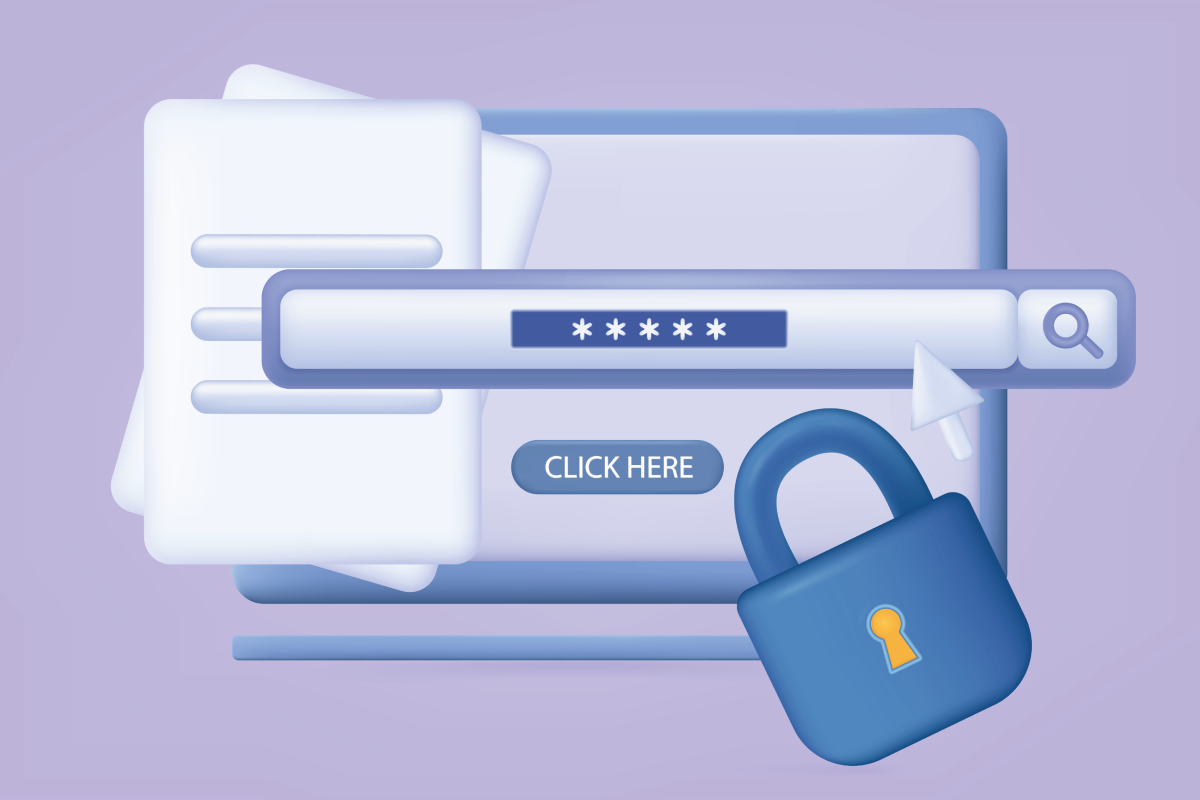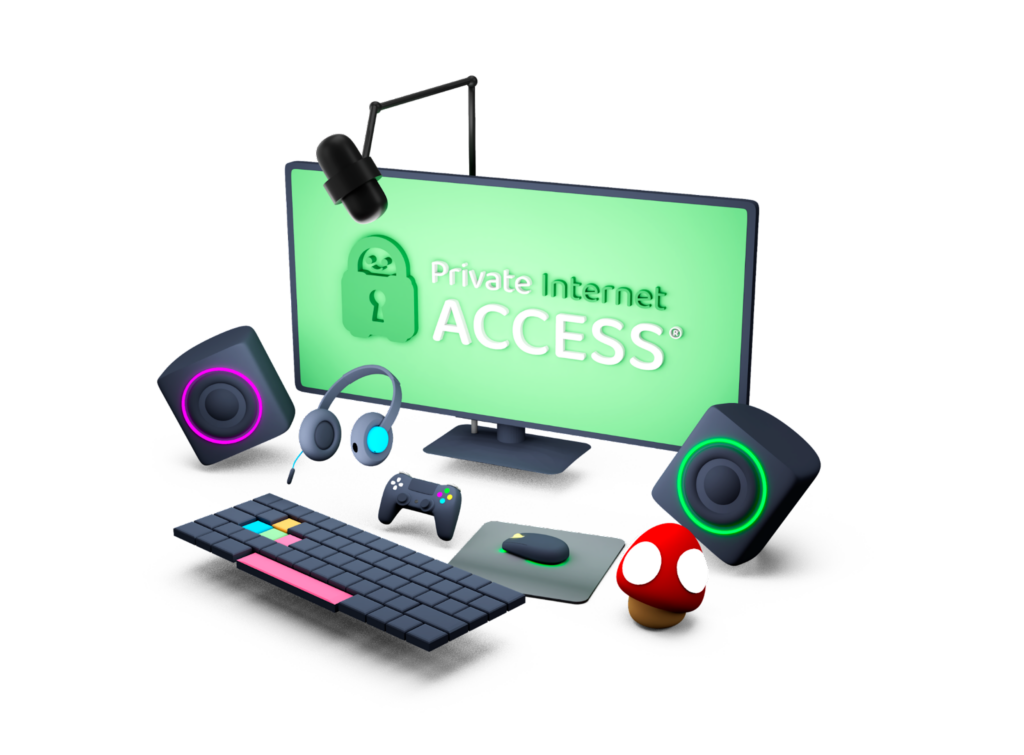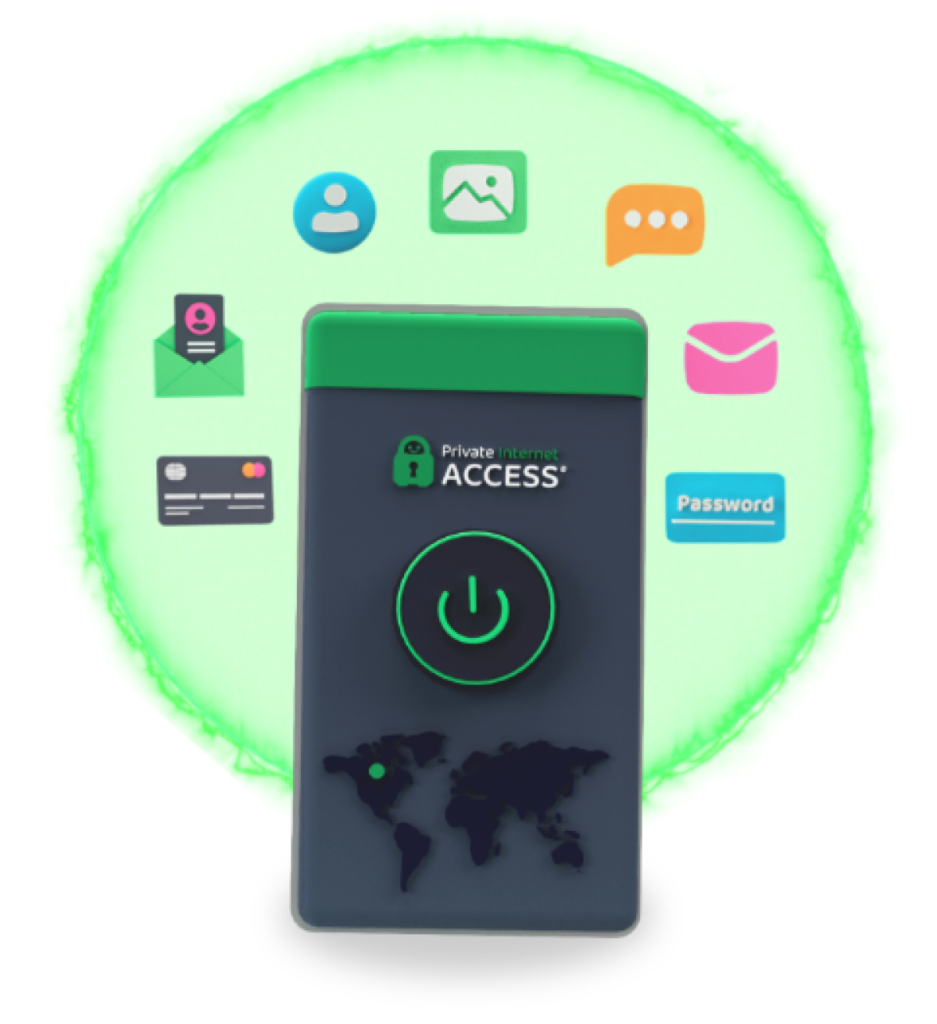What Is SmartDNS? Is SmartDNS the Same as a VPN Service?

If you’ve ever needed to change your IP address, someone may have told you to try SmartDNS, VPNs, or proxies. What are they, though, and which one will do what you need it to do? It’s a long-standing debate — one we’re going to put to rest.
SmartDNS helps you unblock websites on restricted networks, whether you’re on public Wi-Fi or traveling abroad. But so does a VPN (and some VPN services even offer SmartDNS). So which one should you use? We’ll look at SmartDNS vs VPNs, and compare the pros and cons of each to help you decide which one is right for you. We’ll also walk you through when to use SmartDNS and how to set it up on your device.
PIA VPN has SmartDNS built in, so you can configure in on your smart TV, game consoles, and streaming sticks quickly and easily.
Table of Contents
What Is DNS?What Is SmartDNS?
When to Use SmartDNS
What About Proxy Servers?
SmartDNS vs. Proxy vs. VPN
How to Use SmartDNS with PIA VPN
SmartDNS vs. VPN — The Choice Is Yours
FAQ

What Is DNS?
Before we dig into SmartDNS and how it works, let’s run through what DNS is. DNS stands for domain name system. This system contains a list of numbers. Every website has a unique DNS number, also known as an IP address. The system is almost like a phonebook of contact numbers (or IP addresses) for every website on the internet.
Rather than using a long and complex IP address every time you visit a website, you simply type in the domain name. This sends a DNS request to the website’s servers, which translates the domain name into an IP address that your router will be able to identify. Your router then establishes the connection and gives you access to the site.
Think of a DNS request as making a phone call. Instead of typing in a number, you type the person’s name and your phonebook automatically calls the right number. In this case, your ISP’s DNS servers act as the phone book.
Your ISP handles all your DNS requests through their servers to direct your traffic to the right place. So if you make the phone call, your ISP looks up the phone number in its system to find out where you’re trying to go. This means your ISP can decide whether or not you get access to a website, which is why some sites are blocked depending on your location (IP address) or the network you’re connected to.
What Is SmartDNS?
SmartDNS works in the same way as your ISP’s DNS servers but with a redirection functionality. When you visit certain websites, SmartDNS reroutes your DNS requests to the SmartDNS service’s server. The SmartDNS service also replaces the location data in your request with location information from its DNS server.
SmartDNS doesn’t assign you a new IP address like a VPN does, but it changes how websites see your IP address. For example, you may be browsing in the UK, but connected to a German SmartDNS server. Your DNS requests are redirected through German proxy servers rather than local ones before reaching the website’s servers. This means the website thinks you’re accessing the site from Germany.
Switching DNS locations is particularly useful for regaining access to streaming platforms if you’re traveling overseas, but SmartDNS services aren’t always reliable. Most SmartDNS providers only include a select few server locations — and some don’t let you choose your server location. That means you could still struggle to regain access if the SmartDNS reroutes your traffic to a country where the streaming service is blocked.
When to Use SmartDNS

Some VPN providers don’t have apps for certain devices, like smart TVs or gaming consoles. SmartDNS is an easy workaround. Rather than trying to configure the VPN to your router so you can use it on these devices, you can simply switch on the SmartDNS feature. This allows you to regain access to content that might otherwise be blocked.
SmartDNS is also useful if you just want to hop onto your streaming platforms and aren’t too fussed about security. You can easily redirect your DNS requests to carry on streaming, even if you’re traveling abroad.
SmartDNS doesn’t encrypt your connection like a VPN does, so it can also help with increased speeds. It does mean your connection is more vulnerable to cyber attacks, but if you’re just catching up with your favorite Netflix series, you might be more willing to compromise on security for high-speed connections.
Some VPNs have SmartDNS built in, but others might not offer it at all, so you may need to purchase a separate SmartDNS subscription elsewhere. At PIA, we offer SmartDNS at no extra cost to your VPN subscription. You can configure PIA VPN’s SmartDNS to your smart TV, game consoles, and streaming sticks in just a few minutes. Jump to our step-by-step instructions to get started.
What About Proxy Servers?
If you’ve heard of SmartDNS, you’ve probably heard of proxy servers. So what are they? A proxy acts as an intermediary server between your device and the internet. When traffic leaves your device, it travels through the proxy server before reaching the website address.
Although SmartDNS and proxies sound similar, they operate very differently. Proxies replace your real IP address with the proxy server’s IP address. SmartDNS changes the way a website sees your DNS requests — it doesn’t replace your IP address.
Like SmartDNS, proxy servers don’t offer any encryption, which means your traffic is still exposed. ISPs can see your DNS queries, so they know which websites you’re visiting. Sites can still log your data and track you as you move around the web. Proxies do offer some additional privacy though, since they replace your IP address with another. This means it’s difficult for websites tracking you on the other side of the proxy server to trace traffic back to your real IP address.
SmartDNS vs. Proxy vs. VPN
SmartDNS, proxy, and VPN — it’s hard to know which to choose, especially since they claim to offer similar benefits. Let’s see how they compare and look at the pros and cons of each.
| Proxy | SmartDNS | VPN |
| An intermediary server that works as a “middle man” between your device and the internet. It changes your location to the proxy server. Your IP address can be traced back to the proxy server, not your network. | Redirects your DNS queries through SmartDNS servers with a different location. This removes location-based data from your IP address and makes it appear like you’re in a different location. | Encrypts your traffic then redirects your connection through an intermediary server. Your IP address can be traced back to the VPN server, not your network. Encryption scrambles your traffic data so third parties, including your ISP, can’t see any information sent over the connection. |
| Pros
|
Pros
|
Pros
|
| Cons
|
Cons
|
Cons
|
Proxy servers and SmartDNS use DNS redirection and location masking to allow you to unblock websites. Since neither encrypts your connection, it means you get high-speed connections, which is especially useful if you’re gaming online or streaming. Except doing so can cost you some of your privacy.
SmartDNS leaves your DNS requests visible to your ISP, so they can still see your internet history. It doesn’t conceal your real location either. Even with a proxy, your data is up for grabs. It doesn’t conceal your web traffic, so websites can track you using the new IP address. Cybercriminals can also intercept your data — anyone could spy on your traffic on its way to the proxy server and steal your information.
You have slightly more privacy once your traffic leaves the proxy server. It’s more difficult to track activity back to your real IP address, but your data is still exposed. Proxies also only mask your IP address from a select service or app, so any other data leaving your device still uses your default IP address.
If you want to boost your online privacy, a VPN is your best solution. VPNs encrypt all traffic on your device and switch your IP address to one from a location of your choice. This masks your real location and stops any third parties like your ISP, government, Wi-Fi owner, network admins, and cybercriminals from spying on your traffic. That includes which websites you visit, the content you look at, and what you download.
Websites and your browser only see your VPN IP address, but they’ll still be able to track your activity on their sites and across the web for that session. Your ISP can still see your real IP address, but they can’t look at your DNS queries and will only see that you’re connected to a server and how much bandwidth and data you’re using.

Additional privacy can slow down your internet speeds, but most VPNs offer reliable connections so you won’t notice a drop in speed. You can download PIA VPN to get speed and privacy in one. Our VPN includes strong encryption, a strict No Logs policy, and a worldwide network of high-speed servers.
How to Use SmartDNS with PIA VPN
SmartDNS is included with your PIA VPN subscription. We don’t offer SmartDNS inside the VPN app, so you’ll need to head to our website first and log into your account. Follow these steps to get started:
- Log into your PIA VPN account and in the Client Control Panel, look for Smart DNS on the left-hand side.
- Click on Smart DNS and you’ll see the option for Smart DNS Setup.
- Select your device from the drop-down menu.
- You’ll see the option to choose a SmartDNS server location. Select either Germany, the UK, the USA, Japan, or the Netherlands.
- PIA will automatically generate a SmartDNS IP address once you’ve chosen the server location.
- Once you have your SmartDNS IP address, you’ll need to add it to your device. Refer to the network and IP address settings on your device to change it to your new PIA IP address.
If you need any help, reach out to our friendly Customer Support and one of our experts will be happy to assist you.
SmartDNS vs. VPN — The Choice Is Yours
SmartDNS is a reliable workaround if you’re using a device that doesn’t support VPN apps. It also means you can unblock sites easily by redirecting your DNS requests, but only if you redirect your traffic through certain locations. It also means compromising some of your online security.
Only a VPN encrypts your connection to stop data logging and conceal your traffic from snoopers. You get all the benefits of SmartDNS without the drawbacks. You can download PIA VPN to bypass network blocks and stream with super-fast speeds while boosting your online privacy.
FAQ
No. SmartDNS redirects your DNS queries and changes the way websites see your IP address. It doesn’t hide your IP address. It redirects your traffic to a SmartDNS server with a different location, so websites see an IP address from that country.
It depends on what you want to use SmartDNS for, but in short, no. SmartDNS allows you to unblock websites and stream at high speeds, but a VPN offers all that and more. SmartDNS doesn’t encrypt your connection, mask your location, or hide your traffic, but a VPN does.
Some devices like smart TVs and game consoles don’t allow VPN apps, so enabling SmartDNS can help you get around blocks. You also could configure PIA to your router so any Wi-Fi-connected device can use the VPN. That way, you can reap all the privacy benefits of a VPN that you can’t get with SmartDNS and still unblock the sites you need.
Yes, using SmartDNS is perfectly legal. All SmartDNS does is redirect your DNS requests — there’s nothing illegal about that. Your ISP can still see your DNS requests and trace them to your actual IP address, so if you engage in any illegal online activity, they’ll know.
Netflix is known for its intense blocks. This makes it difficult for even the most reliable VPNs to get around, never mind SmartDNS. You often can’t select the server location with SmartDNS, so you might not be able to choose which Netflix library you stream from. You can download PIA VPN to safely keep using your preferred Netflix library, whether you’re traveling abroad or on a restricted local network.
SmartDNS redirects your DNS requests and replaces location information assigned to your traffic. It doesn’t hide your IP address. Proxies mask your real IP address with the proxy server IP address, rather than just rerouting DNS queries. Neither SmartDNS nor proxy servers encrypt your connection. A VPN swaps your IP address with one from another location and encrypts all traffic on your device, so it’s the best way to change your virtual location and protect your online privacy.
